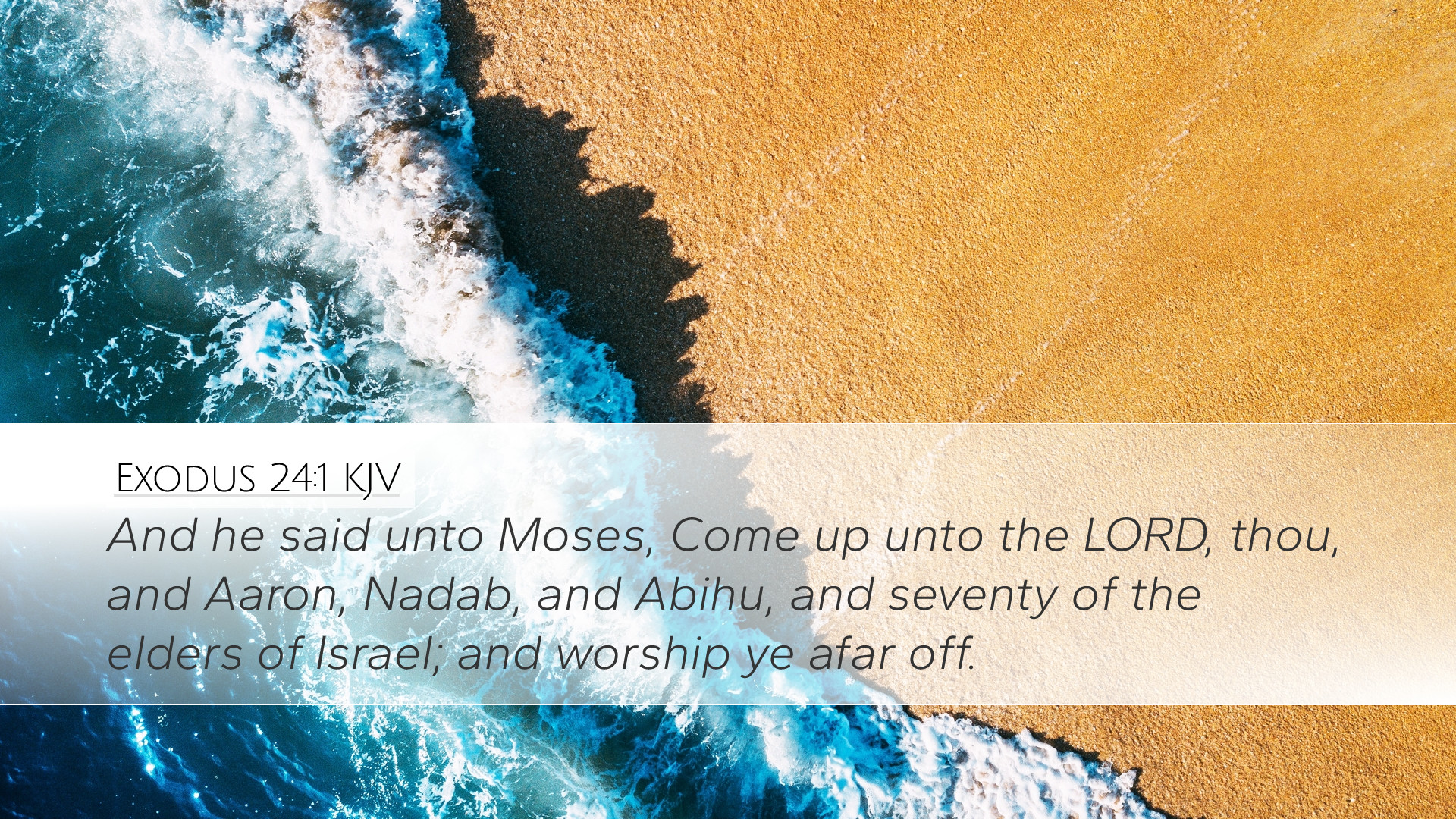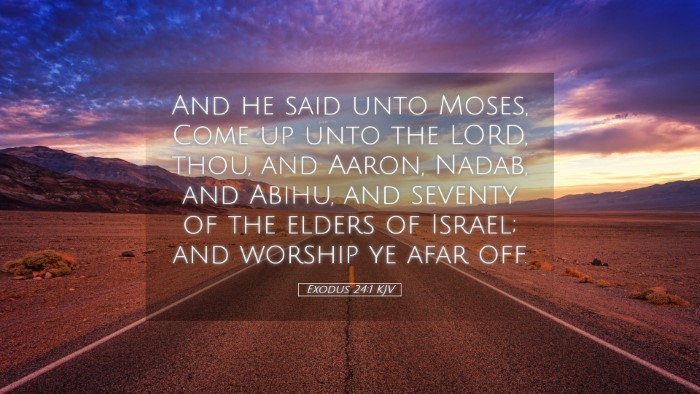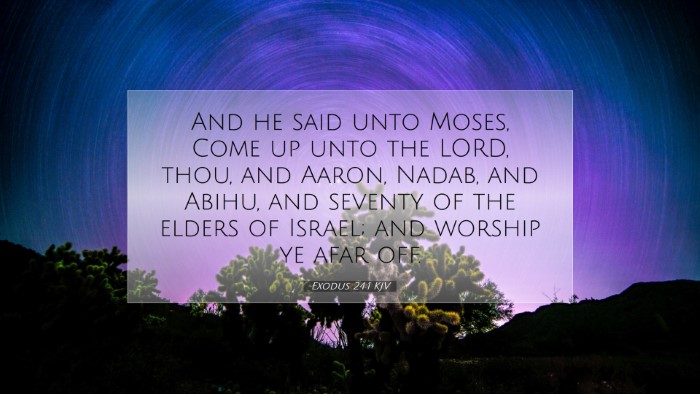Exodus 24:1 Commentary
Verse: Exodus 24:1 - "And he said unto Moses, Come up unto the Lord, thou, and Aaron, Nadab, and Abihu, and seventy of the elders of Israel; and worship ye afar off."
Introduction
This verse marks a significant moment in the covenant narrative of the Israelites. God calls Moses and several leaders of Israel to ascend the mountain to partake in a sacred experience of worship and revelation. The weight of this moment is underscored by its theological and communal implications, as elucidated through various public domain commentaries.
Divine Invitation
Matthew Henry Commentary: Henry emphasizes the nature of God's invitation. It reflects God’s desire for fellowship. Moses, along with selected leaders, is called to enter into a privileged relationship with God, highlighting the importance of spiritual leadership in Israel.
Adam Clarke’s Commentary: Clarke notes that the invitation is not merely for Moses but includes Aaron, Nadab, Abihu, and the elders. This inclusion signifies the communal aspect of worship and covenant, demonstrating that God desires a community that worships Him together.
Worship from Afar
The instruction to "worship ye afar off" raises critical discussions regarding the nature of God’s holiness and the human approach to divine majesty.
- Albert Barnes' Notes: Barnes elucidates that the distance was a protective measure; God's holiness is such that direct approach by sinners requires caution. Worship involves awe and reverence, acknowledging the dangerous nature of God’s holiness.
- Matthew Henry: He expands on this by stating that while they could worship from a distance, it underscores a profound truth: that man’s sinfulness distances him from God, who is perfectly holy. The phrase reflects the inevitable gap between God's righteousness and human frailty.
The Importance of Leaders
The mentioning of specific individuals—Aaron, Nadab, Abihu, and the elders—highlights the role of leaders in guiding the community in worship and covenant obligations.
- Henry's Insight: Henry points out that leaders must embody holiness and serve as mediators in worship. Their presence at the mountain signifies that spiritual authority comes with responsibility in upholding the covenant.
- Clarke's Observation: Clarke considers the potential implications of the leaders' actions, reinforcing that their behavior would set an example for the people. Leaders must model devotion and reverence to foster a community attuned to divine expectations.
The Theme of Covenant
This verse is integral to understanding the broader theme of covenant in Exodus. God is establishing not just laws but a relationship.
- Barnes' Commentary: He emphasizes that this gathering is foundational to the covenant at Sinai. God desires that leaders be witnesses to His laws, ensuring a lasting relationship between the divine and the people.
- Henry's Perspective: The covenant is not merely legalistic but relational. Worship is a key aspect, indicating that Israel’s identity is rooted in its connection to God. The call to worship shapes the community’s understanding of their purpose.
Applications for Today
Reflecting on Spiritual Leadership: Present-day leaders are reminded of their vital role in guiding communities towards God. There is a call to cultivate a worshipful spirit among congregants, ensuring that the congregation understands the balance of proximity and reverence before a holy God.
Worship Practices: The notion of worshipping from afar informs contemporary worship practices, emphasizing awe and reverence, while also recognizing that Christ's work grants believers access to God.
Relational Covenant: The covenant remains a living reality for believers today. Just as God desired a relationship with Israel, He invites believers into a covenant relationship through Christ, calling them to uphold His commandments and engage actively in worship.
Conclusion
Exodus 24:1 serves as a profound reminder of the holiness of God, the importance of spiritual leadership, and the communal aspect of worship. As pastors, students, theologians, and Bible scholars delve into this text, they uncover the layers of meaning inherent in God's divine invitation to worship, highlighting the richness of the covenant relationship that continues to resonate today.


